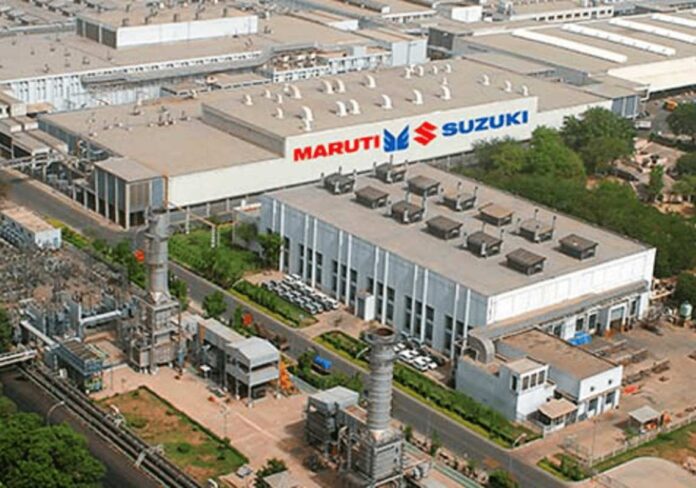
Maruti Suzuki has started work on a Rs 24,000-crore investment plan to set up a 10 lakh-per annum car production factory that would come outside Haryana, the company said in a statement.
The company is setting up another 10-lakh annual production factory at Kharkhoda (Sonipat) in Haryana, where it will invest Rs 18,000 crore for peak output. It plans to add more punch to operations as it remains optimistic on car sales in India, apart from planning a strong push to exports.
Sources told reporters that the new facility is being planned in a location that offers good port connectivity to fulfil export commitments at ease. “The board is likely to approve the investment plans soon and groundwork will happen towards early parts of 2024 by when the land would have been acquired,” one of the source said.
Maruti will meet the investment needs through internal accruals. It has cash reserves of Rs 45,000 crore. The company sees rapid expansion in sales and production as one of the key strategies to maintain its stronghold in India, as it looks to get back 50% share of the car market.
Maruti Chairman R C Bhargava did not confirm the investment numbers, or plans to shift outside Haryana. However, he said the company is looking at a new factory, which will have 10 lakh capacity. He added that the company wants to be in sync with the Indian car market’s expected growth trajectory.
“We don’t want to be caught napping.” Maruti, which had an order backlog of 4. 1 lakh cars (mostly due to shortage of semiconductors) at the end of Q4 of 2022-23, has factories in Haryana, while its parent Suzuki runs a facility in Gujarat.
The company’s Haryana plants — in Gurgaon and Manesar — have a capacity of 15 lakh units annually (additional one lakh units will be added to Manesar by 2024-25), while Suzuki’s Gujarat factory gives another 7. 5-8 lakh units annually. Its partner Toyota provides the company with 50,000 units through its factory in Karnataka.
The company is targeting to begin the first batch of production at Sonipat from 2025 with 2. 5 lakh cars per annum. Bhargava said apart from petrol, CNG, flex fuel and hybrid cars, the company will also go big on electrics, with plans to drive in six green cars by 2030.
On demand in 2023-24, while the industry expects a growth between 5% and 7%, Maruti is targeting to grow faster than this.








